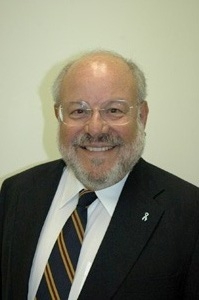By Karl Grossman
Last week's granting by the U.S. Nuclear Regulatory Commission of combined construction and operating licenses for two nuclear plants to be built in Georgia--both Westinghouse AP1000s--is the culmination of a scheme developed by nuclear promoters 20 years ago.
There have been huge changes in energy since. The consequences in death and illness of of the 1986 Chernobyl nuclear plant disaster have become manifest. Wind energy has become cheaper than nuclear--thus is the fastest growing new energy source--and solar is well on its way. The two troubled giants of nuclear power, Westinghouse and General Electric, sold out to the Japanese in 2006: Toshiba took over Westinghouse's nuclear operations and GE partnered with Hitachi. And then there's been the catastrophe at the Fukushima-Daiichi nuclear plant complex.
Still, as if a runaway train, the nuclear juggernaut has roared on.
The strategy for what happened last week was set with the passage of the Energy Policy Act of 1992. The vote in the House of Representatives was 381-to-37. "As the bill wound its way through the Senate and the House, the nuclear industry won nearly every vote that mattered, proving that Congress remains captive to industry lobbying and political contributions over public opinion," reported the Nuclear Information & Resource Service then. (The same could be said about Congress now.) The New York Times said, "Nuclear lobbyists called the bill their biggest victory in Congress since the Three Mile Island accident."
The measure, signed into law by the first President Bush, provided for "one-step" nuclear plant licensing. Previously, there were hearings held in the area where a nuclear plant would be built--one on granting a construction license and, later, a second on whether to issue an operating license.
This presented a big problem for the nuclear industry--not that the Atomic Energy Commission or its successor, the Nuclear Energy Commission, ever turned down an application for a construction or operating license. But at the hearings for a construction license major issues arose--such as, with the proposed Shoreham nuclear plant on Long Island, New York, the impossibility of evacuation off the crowded island in the event of a major accident, important in the eventual stoppage of Shoreham. And at operating license hearings, whistle-blowers would emerge, often engineers and others involved in the construction of the plant, going public with testimony about faults, defects and dangers.
Under the Energy Policy Act of 1992, instead of these hearings, the NRC, sitting in Washington far from the areas and people to be impacted, would be authorized to grant in one move a construction and operating license. That's what the NRC did last week for the two AP1000 nuclear plants that the Southern Company plans to build at its Vogtle site near Augusta.
Westinghouse said in the 90s that with this "one-step" process, it would take but five years after NRC approval for an AP1000 to be completed. Indeed, that was what the nuclear industry was saying last week about the Georgia project.
Westinghouse also, before the Energy Policy Act of 1992, touted its AP1000 as an "advanced" nuclear power plant. The act specifically greased the skids for "advanced" nuclear power plants. It featured a section titled "Subtitle C-Advanced Nuclear Reactors" that stated: "The purposes of this subtitle are (1) to require the Secretary [of Energy] to carry out civilian nuclear programs in a way that will lead toward the commercial availability of advanced nuclear reactor technologies; and (2) to authorize such activities to further the timely availability of advanced nuclear reactor technologies."
To push the new system along, NuStart, which calls itself "a consortium for new nuclear energy development," was formed. NuStart, says further on its website ( www.nustartenergy.com ), that it has been "formed to respond to a Department of Energy issued solicitation to demonstrate the NRC's COL [Construction and Operating License] process." NuStart has been working closely with utilities for them to utilize the one-step licensing process and build new "advanced" nuclear plants. As to its funding, its website says that "NuStart is participating in a 50-50 cost sharing program" with the Department of Energy.
Thus U.S. tax dollars have been and are being used for a system all but eliminating public input to get new "advanced" nuclear power plants up and running--and fast.
NuStart lists 10 corporate "members." These include the Southern Company, Exelon, Entergy and other utilities committed to nuclear power as well as Westinghouse and GE. The president of NuStart "since its inception," says the NuStart website, is Marilyn Krey. "Marilyn is also Vice President, Nuclear Project Development for Exelon," it states. Exelon owns the most nuclear power plants of any U.S. utility. "Prior to joining Exelon, Marilyn was a reactor engineer and project manager for the Nuclear Regulatory Commission," it goes on. Yes, the nuclear power-revolving door.
The chairman of the NRC, Gregory Jaczko, voted against the licensing on February 9. He cited the need to "learn the lessons from Fukushima." Jaczko stated: "I cannot support issuing this license as if Fukushima had never happened."
But the other four NRS commissioners--nuclear power zealots all--voted for the licensing. "There is no amnesia individually or collectively regarding the events of March 11, 2011 and the ensuing accident at Fukushima," wrote Commissioner Kristine Svinicki for the four. No, not amnesia--they all know of the Fukushima disaster, but with their staunch allegiance to nuclear power, they don't give a damn.
(Note: You can view every article as one long page if you sign up as an Advocate Member, or higher).





